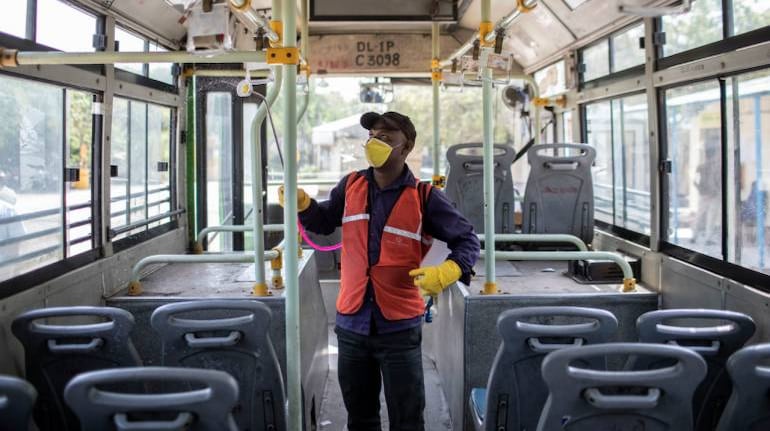



Delhi has gone into a curfew starting 10 pm on Friday to 5 am on Monday to check the sharp increase in coronavirus cases. The city on Friday reported 17,335 fresh COVID cases, the highest single-day spike since May 8 last year when the tally reached 17,364.
A total of nine persons succumbed to the virus in Delhi on Friday, pushing the death toll to 25,136. The national capital last reported nine or more COVID fatalities on June 26 last year, when the same number of patients had died.
The infection rate in the city climbed to 17.73 per cent on Friday, the highest in last eight months. According to the Delhi health department, the city had reported 17.75 per cent positivity rate on May 11, 2021.
The number of active COVID cases in the city jumped to 39,873 on Friday, the highest since May 20 last year when Delhi had 40,214 active cases.
Delhi presently has a recovery rate of 95.68 per cent, and fatality rate of 1.67 per cent.
Delhi Health Minister Satyendar Jain said that Delhi was witnessing surge in infections because most of the international flights land here.
"That is the reason we have implemented stricter measures to contain the spread of COVID-19 as compared to other states," the minister said. "Some people may say that this is not needed but it is better than repenting later."
Overall, India is witnessing a surge in COVID-19 cases with the spread of the Omicron variant. The country reported 1,17,100 new cases on January 7. Many states have re-imposed restrictions because of the surge in infections.
To combat the rising cases, Delhi will shut markets and malls over the weekend and only shops selling essential commodities will be allowed to open.
Metro trains and buses can run with 100% of the seating capacity. Standing passengers will not be allowed. Boarding in buses will only be allowed from the rear door, while de-boarding can take place only from the front.
Government officials who are not involved in essential services will work from home. In case of private offices, 50% employees will work remotely.
The curfew will not affect the functioning of testing labs, oxygen suppliers and other medical services.
There are restrictions on movement during the curfew period, except for emergencies. However, the following categories will be exempted:
Officials involved in emergency services and officials of the Government of India. They will have to produce valid identity cards.
Doctors, nurses, paramedics, pregnant women, patients and their attendants.
People going to get vaccinated or tested for COVID-19, persons travelling to and from railway stations, airports and bus terminals. The travellers have to produce their tickets as proof.
Professionals engaged in print and electronic media, students appearing for exams and staff deployed for duty for exams.
People going to attend weddings. They will have to produce copies of invitation cards.
Discover the latest Business News, Sensex, and Nifty updates. Obtain Personal Finance insights, tax queries, and expert opinions on Moneycontrol or download the Moneycontrol App to stay updated!
Find the best of Al News in one place, specially curated for you every weekend.
Stay on top of the latest tech trends and biggest startup news.